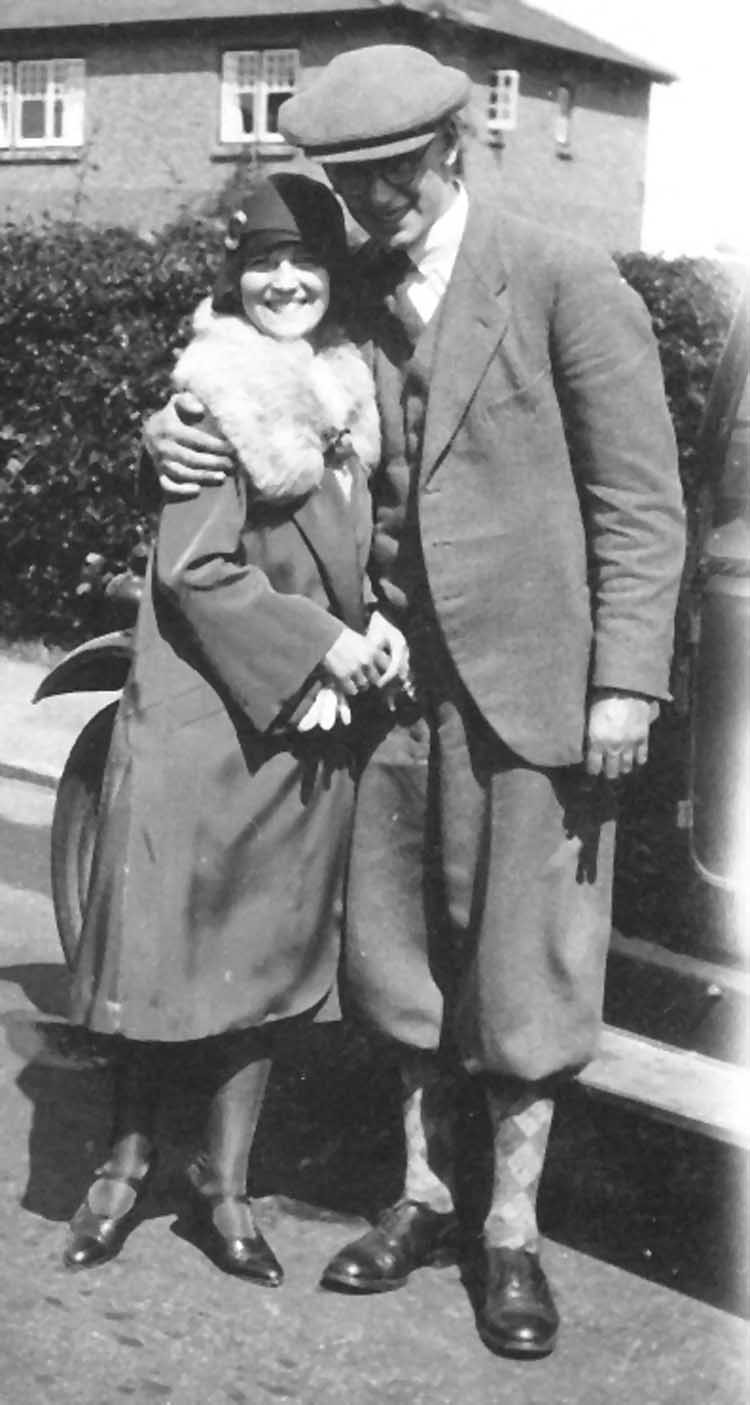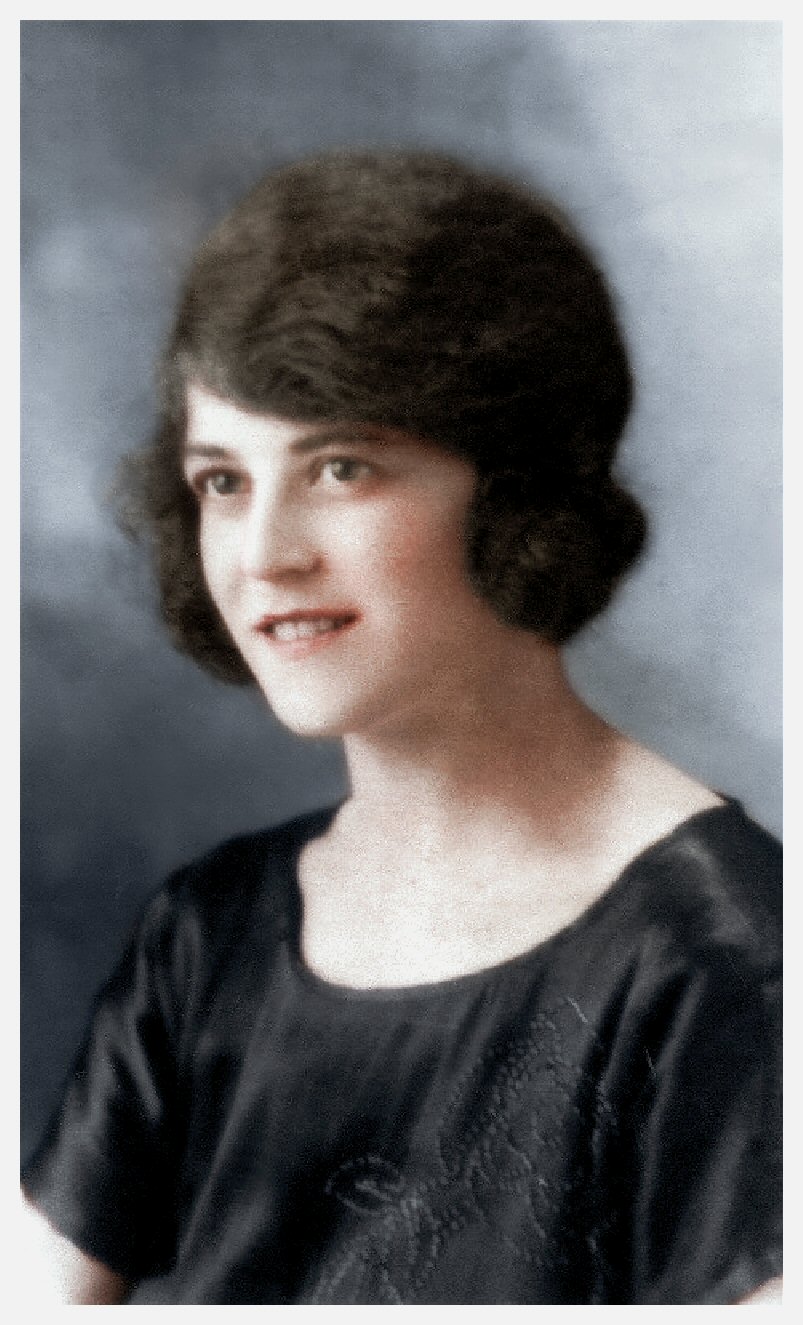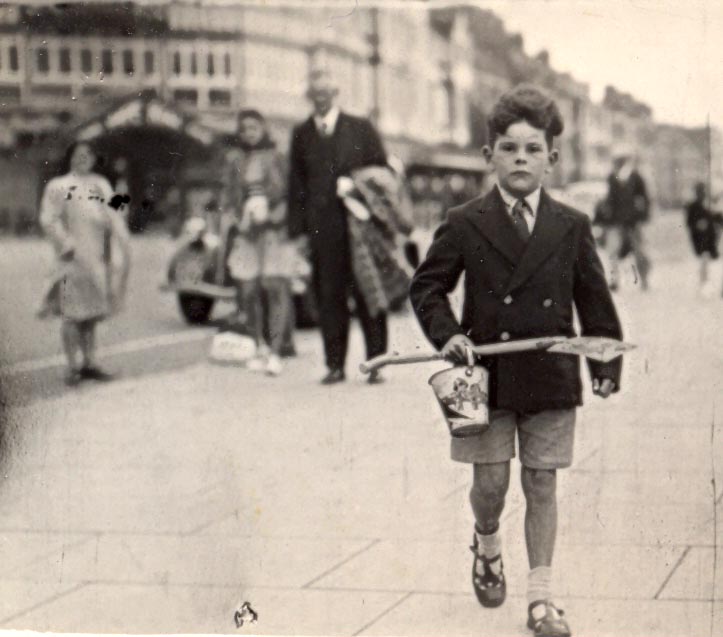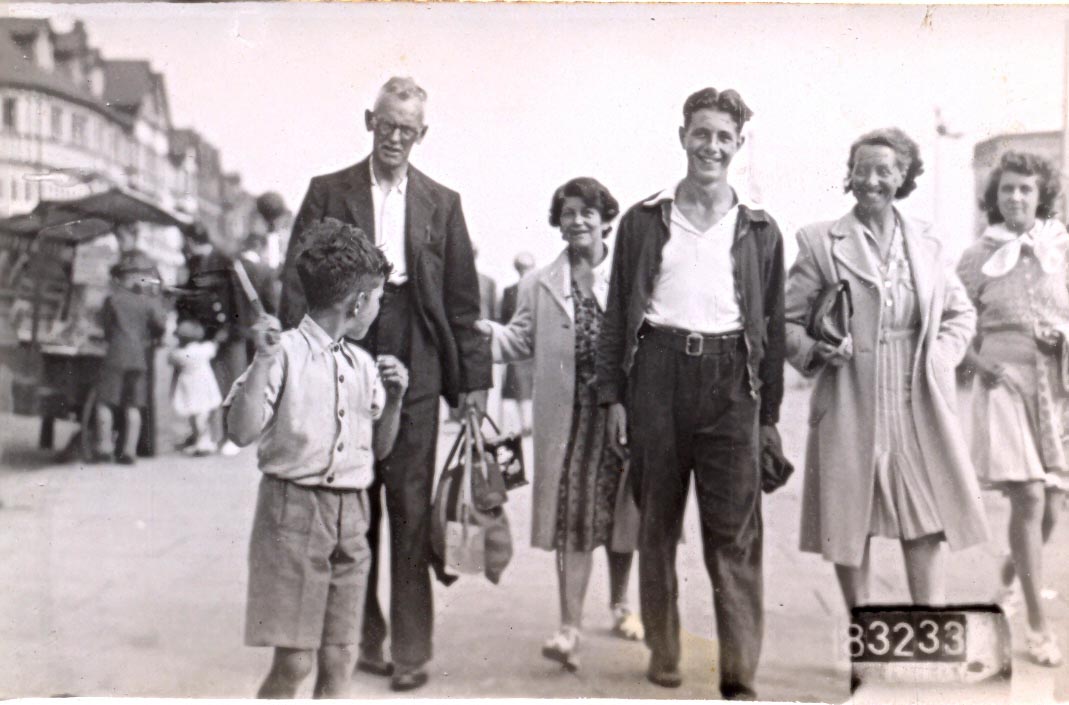BACK TO MY
INDEX PAGE
JOHN NEVILLE BARCOCK.
AUTOBIOGRAPHY CHAPTER 1.
Chapter
1.
My
Early
Years
1.
I was born in
October 1939
2.
Life
for
me,
growing
up
during
the
war
3.
My
father
4.
The
"Black out"
5.
Wartime
Christmas
7.
Other
wartime memories
8.
Allotments
9.
Holidays
10.
Reliving
the
Skegness
holidays.
LINK
to Childhood Memories
LINK to Picture Gallery
My Early Years
1.
I
was
born
in
October
1939 in Northampton,
just
before
the
outbreak
of
World
War
II.
I was Christened John Neville, after Neville Chamberlain,
the Prime
Minister at the time and later reviled for his policy of appeasement
with Hitler's Nazi Germany. Actually, I think he
was a good man and I don't mind being named after him as I believe he
was trying to avoid the dreadful conflict he knew would happen if war
broke out. He was so right in that respect but so
wrong to think that he could make peace with Hitler.
My
parents
must
have
had
faith
in
him
anyway
as
did
many
others
who
cheered
him
when
he
returned
from
meeting
Hitler
waving
his
paper
treaty
assuring
peace.
Unfortunately that was all it was, a piece of paper.
I
try to think now of how my parents must have felt, facing a
life at war having a new born baby and a girl of 7, my sister Muriel.
However, I suppose my father, William
(Bill)
Barcock was fortunate
being too old for the "call up" to the armed forces, he was as old as
the year, 40. He was too young for the First World War so escaped both.
Good old Dad!
He was a clerk in the Northamptonshire County Offices Department. He
later rose to be Chief Clerk. He was a man of absolute integrity,
scrupulously honest and fair, but also fond of his pint of beer and
tobacco. I have tried to live up to his example, well, I try to be
honest, I enjoy a drink and I used to smoke but gave that up.
My mother Alice was simply beautiful. Nothing else can describe her
looks, as you see in the picture below,
but she was also beautiful inside. I honestly cannot think of anything
bad about her, and she doted on me. I feel now that I did not repay her
adequately, but I did my best and I know that she would not reproach me
for any failing.


Mum &
Dad
Mum
BACK
TO
TOP
WARTIME
MEMORIES
2. Life for me,
growing up during the war,
was
pretty
good.
I
have
nothing
but
fond
memories,
a
tribute
to
my
parents.
We
were
living in
Northampton in the house they bought in 1929 for £200 I
discovered from the deeds. A
semi-detached house in Highfield Road Kingsley, on the Northern side of
Northampton. I never had any fears because they never gave me cause to
worry.
As I began to take notice of my surroundings around the age of 2, my
earliest memory was of the air raid siren and it being linked with
every time the played the "Blue Danube" on the gramophone!
We shared a "Anderson" shelter with the next door neighbours dug into
the ground in their garden. It was just a simple corrugated iron arch
covered with earth and with seats and some supplies inside. No good
against a direct hit but safer than the house. Actually no bombs hit
Northampton except the odd stray one as Coventry and the Birmingham
factories were the target more than 30 miles away from us.
Eventually, my mother refused to go down into it, she was fussy about
the dirt and spiders, and we stayed in the house. As wise decision as
it turned out. I do remember being called into the garden one evening
with others to watch Coventry burning. There was an orange glow in the
sky which I thought was very exciting having no idea what was
happening. That was August 1942 when I was nearly 3 years old.
BACK TO TOP
3. My father
was the kind of man
people trusted and often came to him for
advice so it was no surprise that he had responsibility for the
Highfield Road ladder, supplied in case of emergency and kept in our
side entrance. A long, very heavy wooden ladder and I remember him
explaining how to "walk it up" raising it as you went from the end. No
doubt he had training for this from the ARP, Air Raid Precaution
service. He also manned a searchlight on the Northamptonshire County
Offices roof on some evenings. Watching the TV program "Dad's Army"
about the Home Guard and the ARP, the characters are absolutely as I
remember those types. "Put that light out!" was a warning I can
remember. My Uncle Jack was in the ARP in High Wycombe where I live now
and he said the ARP warden explained that the ladders were made of
"Hoke, Hash, Helm and Horegon pine!"
4. The
"Black out" was exciting to
me. We had cardboard panels to put up
at the windows and the curtains had to be drawn. No street lights, so
if we were out after dusk we had to use torches, and ones with a little
hole to allow a pencil beam, shone at the ground not upwards on pain of
death! If it was foggy, everybody had coal fires which made it worse,
then sometimes it was impossible to get around.
The cars had white outlined mudguards to make then visible, but I don't
remember that. However I do remember the cars that were around. Only
doctors and essential workers could have petrol so cars were few to be
seen, but I loved cars and I could soon name every make that we saw. We
did not have a car although my Dad had use of his father's before the
War. They were quite well off and had one of the few cars around.
First an open-top Jowett and later a Wolseley cabriolet. Dad told the
tale when
he drove his parents up to London and got to Piccadilly Circus but was
not sure where to exit. So he drove round and round and my grandfather
raised raised his bowler hat to the policeman on point duty each
circuit!
One Christmas it was so foggy when we walked home from my mother's
parent's house in St James, on the side of town, Jimmy's end as it
was known, my Dad said he had to kick the kerb edge all the way to find
the way
home!
BACK TO TOP
5.
Wartime Christmas was a special time
and we always had a wonderful dinner,
always roast cockerel, no turkeys then. We kept our own hens in a run
in the garden as most people did. They used a china egg to persuade the
hens to lay or sit on the eggs to hatch them. For that a cockerel was
needed of course, and he was kept in a separate pen. I remember
standing and going "cock-a-doodle-do" at him and he would shake his
head and all then hens did too! So we had these lovely chicks, I can
hear them chirruping now. As Christmas approached the cock's days were
numbered and my Dad had to wring his neck. he had advice on how this
should be done but it was still an ordeal and one year the cock almost
won! Dad came around from the side entrance where the deed was done
looking much the worse for wear!
Christmas presents were not easy to get and one year Dad made me a
trolley with box on and handle to pull it. I loved pulling it around
the
garden. It was a car, a bus, a train- anything I wanted it to be.
Somehow I got a pedal car. Maybe a birthday present. It was like silver
racing car. I can just remember it, so I must have been only 3 or 4 and
it only lasted a short time so I must have gotten to big for it. We
took it to Abington
Park, about a mile away on flat route so I could pedal most of it.
In the park it was great fun whizzing around while Mum and Dad and
Muriel had a picnic tea. Muriel arranged for a bench to carry their
names after they died. I wonder if it remains? Muriel was married to
Michael Cheney in the Church of St. Peter & Paul in the park.
BACK TO TOP
6.
My
life
in
the
War
years was
pretty good because my father was at home, he had a good job in the
County Architects department, my mother was very resourceful and always
provided a good dinner for us, bombs did not fall on Northampton
because we were halfway between London and Birmingham and not a target.
I knew nothing different to the wartime situation and it was all
normality to me as a child. Churchill's radio broadcasts became
routine, but always listened to intensely. I can hear his voice still,
with it's grave but optimistic tone telling how we would eventually
prevail. Then, suddenly the Americans became part of it. That meant
chewing gum to me, either in pink tablet form or strips of Wrigleys
gum. That was really prized as there were no sweets to speak of. How I
got the gum I can't recall! We made sweets from cocoa powder and flour
rolled up together somehow. I remember Muriel making them. Eggs were
preserved in isinglass as there was no refrigerators. Preserving food
was important and pickling was a big thing and perhaps why I
still love pickled stuff.
BACK TO TOP
7.
Other
wartime
memories
included
the
sight
of
the
sky
full
of
bomber
planes
making
for
Germany.
I
still
see
these
in my imagination. The later war years saw the 1000 bomber
raids. They collected together all over the country and Sywell
aerodrome near us was a location for Wellington bombers. The droning of
the engines as they disappeared into the night is in my memory.
Muriel remembers more than me being 7 years older. She knew that a
"doodle bug" flying bomb sounded like a motor engine and when it cut
out it was about to impact and explode. One night when we were all in
bed she heard the sound and it cut out! She jumped up and said "
there's a doodle bug and it's cut out". Dad said don't be silly just
before a blast went off and shook the house. "that was a doodle bug" he
said! Later we learned it impacted just outside the town in a village
called Creaton. Muriel's husband Michael said he knew of a man living
there was getting out of his bath and the blast blew in the window and
cut his bottom! Not too serious and that the tale survives shows that
Northampton escaped serious bomb damage.
It was
certainly unusual for a flying bomb like that, aimed at London, should
reach Northampton.
A bomber unloaded bombs onto a cemetary on another occasion and Muriel
said she actually saw that happen
when out one evening. She said the doors of all the houses around
opened as folk looked out to see what had happened and flooded the area
with light, Not the recommended reaction!
One morning I was downstairs before anyone was up I guess, and I heard
the news on the wireless. This is so clear to me I know it happened.
How Mum and Dad were still in bed and I was up listening to the
wireless I don't know, but I do know I heard the newsreader say "The
War is over". I dashed upstairs to tell Mum and Dad "The War is over!".
But they weren't at all surprised and just said "Oh yes". Rather an
ant-climax but they knew of course and, true to form, never mentioned
anything to me. The reality of the War they never allowed to bother me,
good news or bad. Fortunately, none of our near family died or were
injured because of it. My mother's brother John was a soldier but
survived OK. My happy childhood was
amazingly not spoilt by it in any significant way.
BACK
TO
TOP
8. Allotments were a product of the
War years and the campaign "Dig for Victory". They were strips of land
near to the residential housing which were rented out very cheaply to
anyone who wanted to have a go at growing their own vegetables. The
strip areas were measured in "Poles". 10 poles was the basic strip and
enough for one person to manage. Dad started with 10 poles at the top
end of Broadmead Avenue, all covered by housing now but at the Northern
edge of the town then and about a mile or so from home.
This is where he used to meet up with Frank (Chas) DeChasterlain, a
fellow allotmenteer. The DeChasterlain family were our next-door
neighbours before I was born . The
"Broadmead" pub nearby and on their way home was where their Sunday
pint, or two, was the cause of many a spoilt Sunday lunch for
Dad! Mum used to always serve Sunday lunch at 1 o'clock whether or not
Dad was back from the allotment. Since the pub opening time was 12
o'clock it must have been a rush for him to get down a couple of pints
before a wobbly ride back home on his bike with a sack of allotment
produce on the handlebars.
The produce from the allotment I remember were the wonderful potatoes
which we have as a delicacy in the evening with a little butter. King
Edwards and Majestics were names of varieties I recall, and "Little
Marvel" peas. I ate those from the pod on the allotment. I have never
tasted the like since.
I must have been 4 or 5 years old to remember the Broadmead allotment
and then later Dad moved, with Chas of course, to a 20 pole allotment
near the Northampton "Golf House". That was a public course nearby. The
allotment was near the bottom of a valley near a stream, which was
convenient for watering. I have a lot of memories about that one so I
must have been at least 5 and perhaps it was after the end of the War
around 1945.
Allotmenteers kept pigs there, in little pens on the allotment where
they would also have a hut with a stove in to boil up the pig food.
There was an all pervading pong of boiling vegetables.
Everyone had a "pig bin" in the house to save waste food for the pigs, then
it
was
given
to
the
pig
owners.
Recycling was the norm then. Paper was also saved separately.
Dad never kept pigs but we did benefit when a pig was slaughtered by
some pork joints being obtained. I think that officially half the pig
went to the government, but nighttime slaughtering by friendly butchers
played its part! Food rationing continued after 1945 so I think that is
when I was aware of these things. I was certainly never aware of us
being short of food, just the inconvenience of saving ration coupons.
The experience of going to the allotments and helping Dad gave me the
desire to grow my own and I had an allotment when Diane and I first
moved into our home in High Wycombe.
I never really had the time to do it justice but we had some good
produce from it. Why did we have so little time for such things by the
1960s? I still grow runner beans in the garden and they can't be beaten
for taste and freshness.
BACK TO TOP
9. Holidays
away were impossible
during the War and difficult for some time afterward. We had some times
away with my Uncle Jack and Aunt Margaret at Hazlemere near High
Wycombe.
They had a very nice house, Ash Cottage, which I later learned he
rented, on the Holmer Green Road. I just loved it there because of the
country feel of it, the big garden which I could ride around on a
tricycle and most of all the garage with his Austin Seven inside. It
was "mothballed"on blocks because there was no petrol to run it, so I
could play in it. The smell of the leather and oil and petrol is still
with me. after the War we still used to holiday there and Uncle Jack
would meet us off the train at Berhamstead. The 14 mile ride to
Hazlemere in the Austin Seven was magical. If the windscreen
wiper was needed it worked intermittently as it was a vacuum system
dependent on the engine revs. But, no problem, it could be worked
manually if necessary!
Although it was a small car it was tall and roomy and quite comfortable
even with 4 and and 2 children inside.
Eventually, at the end of the War, we could go to Skegness on the East Coast, our
favorite holiday destination. Good old Skeggy! Still known by the jolly
sailorman logo. Because of the howling gales off the North Sea the
slogan used to be "Skegness
is
so
bracing". Now I see it is "Skegness
is
so
relaxing"!
Those holidays were my
happiest childhood days. There was a photo snapshot service on the
promenade and the photographer would snap you whether you wanted or
not, and hand you a ticket number to collect the prints a few hours
later. Here
are
a
couple
of
photos
taken
on
the
promenade
which
I
found.


The one on the left is almost posed, me with my bucket and spade and
Mum and Dad and sister Muriel in the background That was 1945
immediately after the War ended.
The other one is 1946, a walking group with L to R, me, Dad, Mum
Michael and Mrs. DeChasterlain and Muriel. I mentioned the
DeChasterlains earlier and I remember that holiday with them.
The remnants of the war were to be seen on the beach. Pieces of metal
from the aeroplanes and areas cordoned off with barbed wire where there
could still be mines. The Pier was damaged and closed beyond the front
which was a cafe I think. Underneath was an amusement arcade with
ha-penny and penny slot machines next to a bar where my Dad had a beer
while I played the slots with a handful of pennies. We had deckchairs
on the beach and I dug the golden sand, which stretched for miles,
making sand castles and motorcar shapes. A game of cricket was
favourite too.
BACK TO TOP
10. Reliving the
Skegness holidays.
Reliving
the Skegness holidays is
possible
by
writing
them
down,
but
I
realise
this
is
becoming
self-indulgent
and
probably
very
boring!
I
have
therefore shunted them to a separate page " My
Childhood
Memories".
Please go there if you want to know what a Skegness holiday was like
for a young boy in the immediate post-war years.
BACK TO TOP
